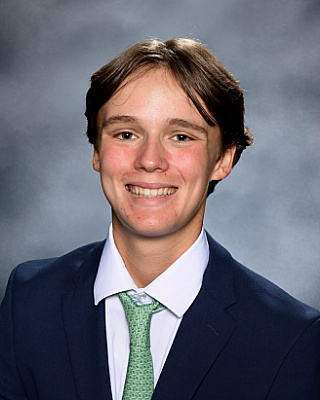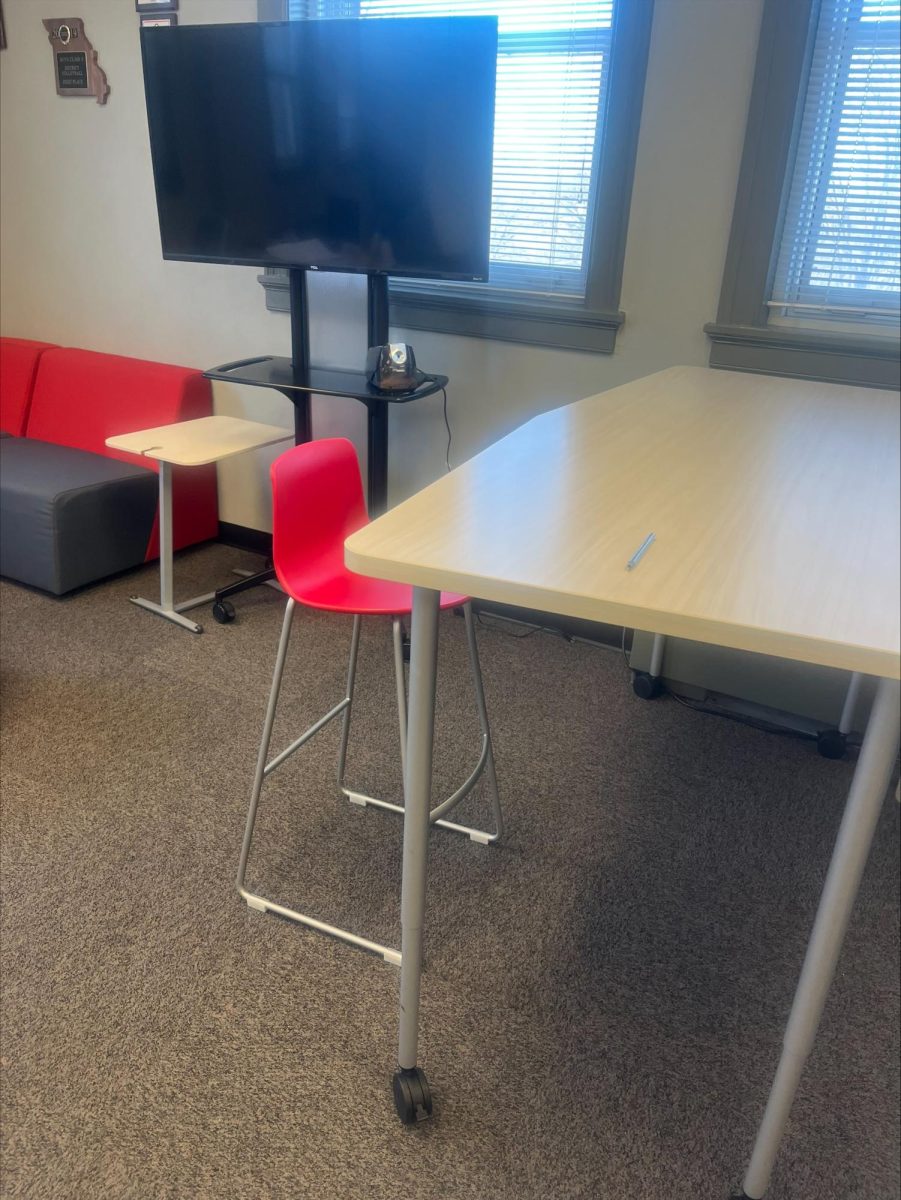Chaminade College Prep takes pride in its faculty and staff. Our teachers are amazing at what they do, forming young boys into men the world needs them to be. Some of these teachers, though, have gone the extra mile, getting their doctorate in their field. They have gone through rigorous courses, spent lots of time and dedication, and have also had to do some sort of dissertation to finalize their doctorate.
I sat down with at least one teacher/faculty member from each department to talk about their journey of receiving their doctorate, what made them want to do it, what subject they got it in, which school they received it with, and what their dissertation was like.
Our Associate Principal of Instruction and Formation, Brett Desnoyer, has succeeded in obtaining his EdD which is an educational doctorate. He went to the University of Indiana to start studying to earn his doctorate but had to get a job teaching because his wife was pregnant. That is how he ended up at Chaminade. Over time while teaching, he began to get the itch to finish what he started. This is what led him to Maryville University where he eventually received his doctorate in education or his EdD. His dissertation was about writing as a way of learning and how we learn more about things by writing about them. One of the main reasons I wanted to write this article was because I wanted to figure out why people want to get their doctorate. After all, it is a lot of work. His reasoning was he really loves studying English because it is used in everything. He also said he was “always interested in improving,” so that is why he decided to culminate his education in the thing he loves dearly.
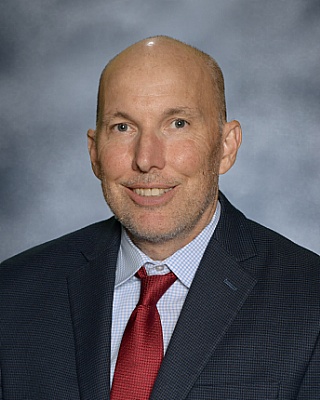
Chaminade’s Instructional Technology Coordinator, Dr. Hannah Bryant, recently received her EdD from Missouri Baptist University in Educational Leadership. While studying for her doctorate, she learned about statistics and the science behind education and teaching. Achieving her doctorate, however, was unique from other faculty experiences. Between receiving her master’s degree from UMSL and receiving her doctorate, she took an unconventional route. She received what is known as an Intermediate degree. It is called an educational specialist degree or Ed.S. She went to a doctoral program that requires the person to have this degree. This meant that she could finish her doctoral program in 30 hours and not the usual 60 hours. Her dissertation was about predictive text. More specifically, it was about how predictive text affects the writing process/creativity, how it interrupts student cognition. Does it help or not? Then, the most important thing in my opinion was why she did this. She said that it was something she always wanted to do, always enjoying learning and wanting to dive deeper into the student perspective. She truly wanted to completely finish school and culminate her education journey.
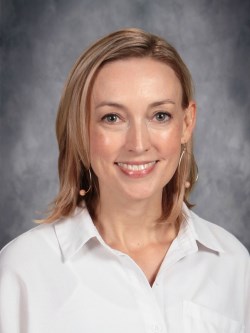
Some faculty members were and are in the process of getting their doctorate without many people even knowing. Our most recent faculty member to receive their doctorate is Dr. Amy Tricamo. Her doctoral journey is quite interesting. Dr. Tricamo received her master’s in education and counseling from UMSL. After that, she didn’t really even imagine she could get her doctorate. As bothersome and depressing as the COVID-19 pandemic was for some people, it was a blessing in disguise for her. She was able to study and receive her doctorate from the University of Missouri all from her computer. Mizzou had never given the option to do this certain program online so that is how the pandemic went in Dr. Tricamo’s favor. Her cohort, which is a group of people studying together to receive the same type of doctorate, was the first cohort to receive this doctorate fully online. Her dissertation even had a relationship with COVID-19. It was on post-covid disciplinary policies. It dove into how discipline changed in schools after the pandemic and how policies needed to change and adapt to new behaviors in the academic setting. She said that it was more of a case study. So although it was a rough time, Dr. Tricamo might not have gone through the process of receiving her doctorate if it weren’t for it.
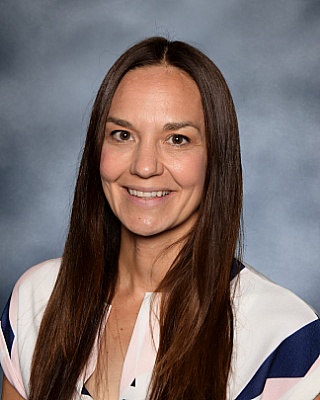
Next on the list is our President, Dr. Todd Guidry. Dr. Guidry got his initial degree in Theology from Xavier University with a minor in peace studies. A couple of years ago, Chaminade began to require faculty members to get their masters. Dr. Guidry signed up to get his Master’s in Educational leadership from St. Louis University’s Institute for Catholic Education. He loved Catholic education so much that they met with the head of the Catholic education program at SLU and convinced them to do a doctoral program. He said that they had to get 14 people to sign up, and they got 19 people to sign up. His intention the whole time was to learn more and study more about Catholic education. His dissertation was with a group of 4 people. It was on how central offices (archdioceses, Marianist province) prepare school leaders to be Catholic or to lead Catholic formation. It asked the question, “How prepared are people to do the most important job of being a Catholic school teacher?” It created a checklist of the best practices for leadership training in the area of Catholic faith formation. They evaluated each central office and scored all of them based on this checklist/rubric.
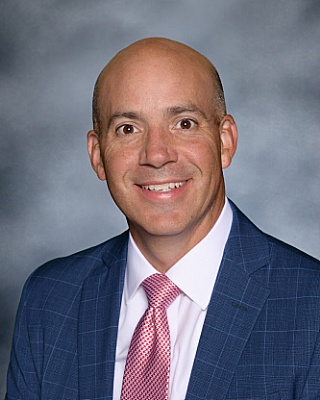
Now, a story that not many people know about. Dr. Noetzel’s road to receiving his doctorate is a little out of the ordinary. He originally went to Washington University to become an architect, but he soon realized that was not what he wanted to do. He enjoyed more of the history of architecture so he moved to history. He graduated from Wash U with a bachelor’s degree in history. He then went to Marquette to get his master’s in history, but then ended up transferring to St. Louis University and changed to the English department. This is where he received his master’s and doctorate degrees. His dissertation might be the most interesting thing of the whole journey. His dissertation was on the British landscape, mythology, and storytelling. There is this part of England called the Fens. This swampy area has 1000 years of folklore about its haunted landscape. His reasoning for receiving his doctorate is his interest in studying British history and literature in as much detail and nuance as possible. He also just wanted to teach in a college or college prep environment.
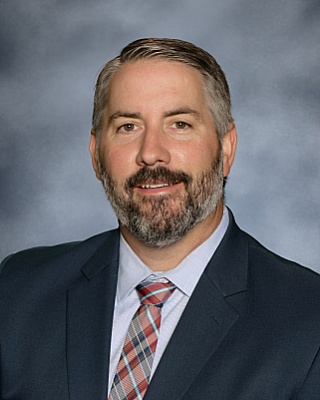
Receiving your doctorate is no easy task, and I think it is important for us as Chaminade students to appreciate our teachers who have done so. It is quite interesting all the different ways and paths you can receive a doctorate, or what you can receive it in. These teachers and faculty members have gone above and beyond in pursuing their academic goals, so they could further enrich the students around them. For that, we should be extremely grateful. For the teachers who I did not cover in this article, ask them about their journey and you might find out some interesting things about your teacher.



